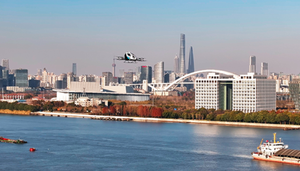How AI is Reshaping the Textile Industry's Supply ChainHow AI is Reshaping the Textile Industry's Supply Chain
The textile industry has always been labor intensive but is undergoing a major shift thanks to AI

Artificial intelligence is revolutionizing the face of many industries, but the textile industry seems to be leading many of these latest technological changes.
Traditionally, the textile industry has always been labor intensive in processes and manufacturing. This enormous sector is on the verge of a major shift thanks to AI in manufacturing, design and supply chain management.
The transition promises much for the future in terms of efficiency, error-free results and sustainability, all in one, which in the long term is a lifeline for textiles.
Innovative Textile Production: Application of Artificial Intelligence
The most notable application in textiles, though, is pattern recognition. An AI program can detect even minute imperfections in the pattern of textile material using a computer vision algorithm based on machine learning.
This basically means that human error is at its barest minimum. Overall, it ensures that only quality products are handed over to customers, thus enriching the reputation of the brand.
Improvement in Quality Control through AI Technologies
Apart from quality control, AI maximally optimizes the production process. In the past, conventional methods of manufacture relied on heavy labor. AI-based automation is a game changer.
Systems running with automation can now cut, sew and dye with improved productivity and less material wastage. For example, robotic cutting machines ensure that the patterns that need to be cut are all accurate; this allows for maximum material utilization with minimal scraps.
Another excellent application field of AI is quality control. Real-time inspection systems connected with sensors and high-resolution cameras using AI technology can recognize defects—misaligned stitches, color mismatches and so on—more effectively than human eyes.
Detection at such an early stage would imply companies would avoid releasing low-quality goods into the market. This leads to increased customer satisfaction.
Data-Driven Insights for Supply Chain Simplification
Currently, with the analysis of a huge amount of data, AI provides on-demand predictions while keeping optimal stock levels. This gives textile manufacturers a view of market trends while dodging problems like overproduction or stockouts.
AI is revolutionizing the industry! It learns about customer preferences and buying habits, which makes shopping much more personal and interactive. Brands will not find it challenging to bring customers back due to this very advantage.
Additionally, apart from all this, sustainability is given an added boost through AI; that is how it reduces water usage and energy consumption. Dyeing and color-matching processes are much more efficient, thanks to AI-driven methods.
Entering the Future: Textiles with AI Technology
Artificial intelligence has transformed business operations, creating significant differences in the textile industry. It will transform the entire process of producing textiles, maintaining better quality control and optimizing production procedures so that personalization becomes possible and sustainability is achieved.
This transformation will lead to efficiency and deliver enhanced products. Thus, as this industry increasingly embraces these innovations, companies that utilize them will have their bottom line affected directly and positively by the environment.
This article was first published in IoT World Today's sister publication AI Business.
About the Author
You May Also Like
.jpg?width=100&auto=webp&quality=80&disable=upscale)
.jpg?width=400&auto=webp&quality=80&disable=upscale)






